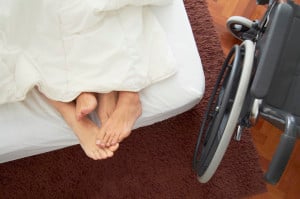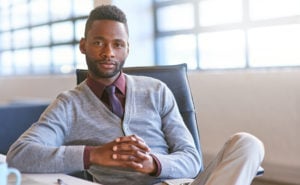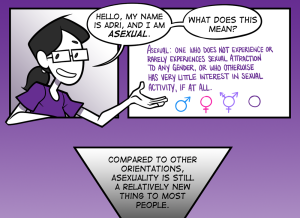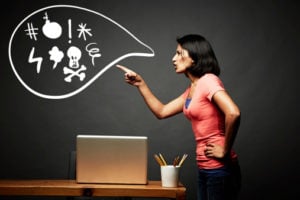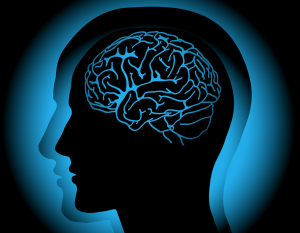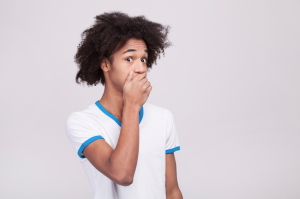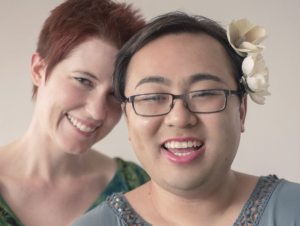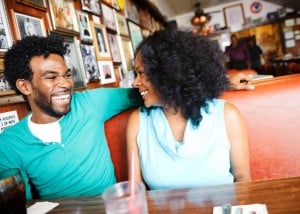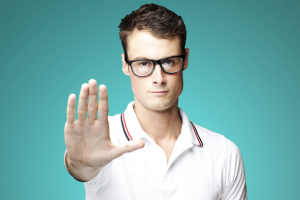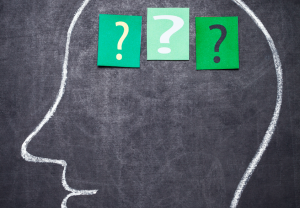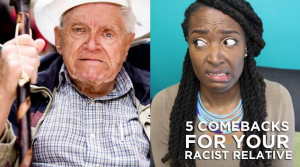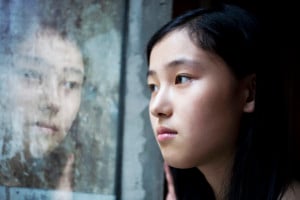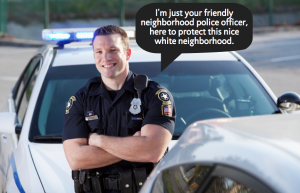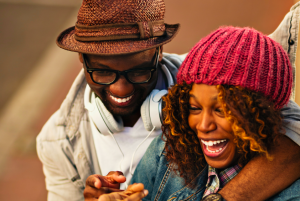Originally published on The Huffington Post and republished here with the author’s permission.
Last night, I decided to reinvigorate my online dating profile.
My “deliciously dirty thirties” (you’re welcome, those of you in or nearing 30) are approaching, and I thought it was time that I tried yet again to connect with someone. Soon enough, this guy and I started talking.
We’d planned to meet for coffee over the next few days. Certainly not wedding bells, but a start. I then changed my profile picture to accentuate my chair. (Full disclosure: I didn’t necessarily talk about my disability in my new profile. Mostly because it was late when I created it, and I just wasn’t thinking about it.)
Well, the minute the guy found out that I’d be bringing my own chair to coffee, his whole demeanor changed. He said that I had deceived him, and that I hadn’t been honest.
Now, this kind of stuff happens to me quite frequently, so I have developed a pretty thick skin (that’s not the only skin I have that is thick, in case you’re wondering). (I’m just going throw on some Molly Ringwald and 90s Alanis and gorge on Chinese, and I’ll be fine.)
I use the above incident as a catalyst for my entry today. It bears reminding that educating the larger LGBTQIA+ community on the needs of Queers with Disabilities is sorely needed yet exhausting work.
In my work, I want to bring to light the lived experience of the cripple (haha, sounds like a Nat Geo segment, amirite?).
So often, I feel as if crips (both queer and otherwise) are attempting to navigate their disabilities in order to ensure the comfort of others.
There have been many nights wherein I lay with a guy in what was meant to be this steamtastic sex romp, but instead turned into me literally asking the guy if my disability was too much for him.
Oh yeah, I am a master of sexual sabotage.
It is very rare that we delve into the mind of the cripples themselves when we explore romance or sex. The majority of the time, it would seem that we are trying to convince everyone else we’re viable.
So, I wanted to go over some common fears that cripples have when we date (or fuck) to highlight how we feel about it. And I talked to some other Queer Crips so that I could gain a fuller perspective.
1. Body Image
This is not specific to Queer Crips, as I think everyone has issues with their body, especially gay men.
That said, I think it takes on a whole different feeling when you have a disability simply because you can’t go to the gym to “work off your crippled.”
I know for myself, I am the king of the selfie because I am constantly trying to fit into that homonormative box, hoping that a certain angle or lighting trick will make someone see past the chair and make me look “worthy” of my sexuality. (I have been trying recently to have my chair in every photo in an attempt to make it part of my awesomeness.)
Interestingly enough, a few of the Queer Crips that I talked to about body image highlighted that it’s hard for them to be called “hot” or “cute,” mainly because they don’t feel like they can trust it.
I can relate to that.
So often, we’re patronized and talked down to out of a lack of awareness, that when someone pays a cripple a genuine compliment, it’s met with a barrage of suspicion that goes something like this: “He’s just saying that” or “It’s just because I’m disabled.”
All this comes from the fact that the disabled body is not prominently featured enough in popular media (HBO, have the producers of Looking call me), and also that People with Disabilities (PwD) have constantly been told that our sex is not valid.
The suspicion that we feel is proof that we have heard this one too many times, and are starting to validate and internalize it.
Many of us will never be the eight-pack bearing model, wheelchair or not; the difference is that without any kind of role model or schematic to draw from, Queer Crips may feel like they’re not sexy to anyone – themselves included.
One Queer Crip said it best when he said: “Don’t you just wish some guy’s balls would be sweating ’cause he’s so hot for you?” I can’t say I’ve ever wished for that particular scenario, but the sentiment is all the same.
2. Help and Personal Care
One of the most anxious moments of any date for a cripple is that moment wherein you realize that you actually need help with something.
For instance, you’re at a fancy restaurant (by fancy, I mean the McD’s down the street, who we kidding?) with your date and you’re laughing and connecting – things are going amazingly – until you hear a loud noise, go spastic, and unintentionally throw your date’s drink back in his face.
The visual is pretty hilarious, but the reactions of my dates have been less so.
Or imagine you’ve survived a night of awkwardly navigated crip-sex (and the guy actually stayed the night), only for you to wake up and need to pee. Under normal circumstances, you’d call your care-worker in to help, or pee in your leg bag (urine bag) and take care of this.
No can do. This beautiful stranger who actually stuck around can never actually know how much work is involved with you. You must pass as able at all costs. So, you spend a good five minutes “going zen” trying to hold your pee, until you relent and ask for help.
Now you have to deal with how awkward it is for this guy to transform from “hot hook up” to “handi-capable helper” (shudder – I hate the term handi-capable).
That can be awkward enough, but one Queer Crip quipped that as a result of his disability, he can’t go anywhere without his ventilation system or a chaperone. One of his biggest fears is how a guy would handle all of the “baggage” and extra stuff that comes with dating or interacting with us.
For many cripples, needing help with certain things that others take for granted is part and parcel of being one of us (oh, that sounds cult-like, awesome). It becomes stressful when you have to ask in romantical (a word I invented, you’re welcome) situations because you’re constantly waiting for the guy to say: “Dude. This is a lot for me to handle. You’re cool, but…”
In fact, there have been times where I was expecting this so much that I orchestrated it, and pushed the guy away, and then was all: “See. It’s because I am crippled.”
Wrong. It’s because I am afraid of you being afraid of me being crippled. Worse than that, I have been scared of guys who have not flinched at my disability, thinking: “Am I their fetish? Just another pity fuck?”
Boyfriends: To me, this notion is a great idea, but a much more complicated reality.
I worry too much about what a guy will think about all my needs, and whether or not they could see past all my needs. Moreover, how can I ensure they don’t simply become my boyfriendtendant = boyfriend + attendant?
3. Touch
One of the most critical parts about being a human being, regardless of ability or orientation, is human touch.
As a cripple, that takes on a whole different meaning. We are so often “touched” in the clinical sense of the word: doctors, nurses, and caregivers. It is a rarity that a lover or someone who finds us attractive touches us.
When they do, it can mean the world to us, and almost all the Queer Crips I spoke with underscored the importance of intimate touch in their lives, and how that almost trumped everything else.
They said that it would be their dream come true simply to be touched, or to lay intimately with one they cared for. See? Cripples ain’t so different after all.
Lastly, one of the most profound statements that I got out of my discussion was this: “We are just as scared of the relationship thing…” I think this is so critical to the discussion of disability and dating.
Just like I have been suggesting that the LGBTQIA+ community has no framework for disability, it is imperative to remember that we have no handbook either.
***
So, to my fellow cripples, I hope this helps you in seeing that many of us understand where you’re coming from. We have all shared in those awkward #cripmoments (can we get that trending?).
To our potential suitors: Please remember that we too are often scared of how you’ll react to our disabilities, and we are constantly dealing with the echoes of systemic oppression.
That said, I say, let’s both “feel the fear and do me anyway.”
Special thanks to my Queer Crips for your insights for this piece.
[do_widget id=’text-101′]
Andrew Morrison-Gurza is the Founder/Co-Director of Deliciously Disabled Consulting, where he strives to make disability accessible to everyone within pop culture and intersectional communities. Within the LGBTQ+ community, Andrew works to deconstruct our homo-normative, body beautiful ideals and show that Queers with Disabilities deserve representation. His written work has been highlighted in The Advocate, Huffington Post and The Good Men Project, where he candidly discusses the realities of sex and disability as a Queer Cripple. Follow Andrew on Twitter @deliciouslydrew.
Search our 3000+ articles!
Read our articles about:
Our online racial justice training
Used by hundreds of universities, non-profits, and businesses.
Click to learn more


